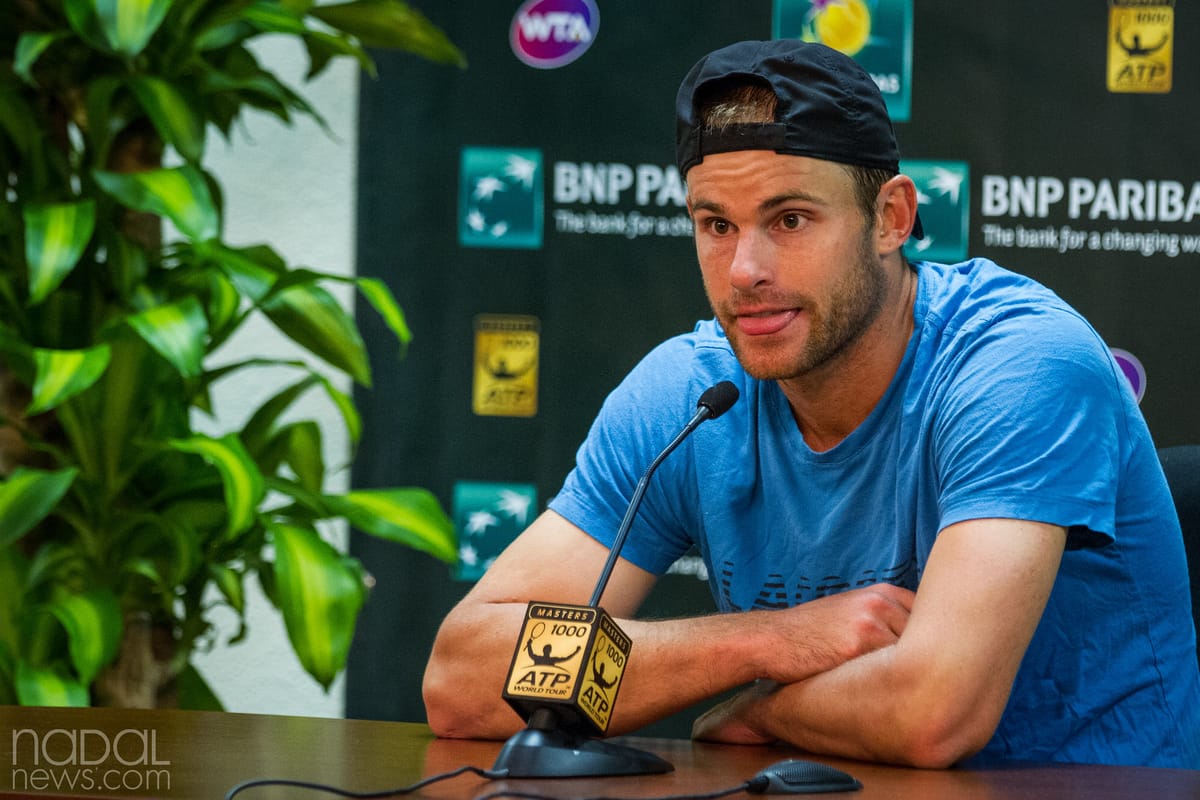Some Sunny Day

Last Thursday, on his 30th birthday, Andy Roddick announced that this year’s U.S. Open would be his last tournament. If you had told me that I would care about this, back in 2003 when he was a 20-year-old tennis whiz kicking ass in a trucker hat and winning the U.S. Open, I wouldn’t have disagreed with you, exactly. I would have cared then—if only because I wanted someone else to be in his spot.
At the time, Roddick was the latest in a long line of American tennis players extending our global dominance, stretching at that point from Connors to McEnroe to Chang to Courier to Sampras and finally to Agassi. Which is to say, I, like almost everyone else in the world, took Roddick’s short-lived dominance for granted and was more interested in finding someone new.
Roddick was frat-handsome and his clothes all seemed two sizes too big. He was smart-assed and teenage girls loved him. He had a scary forehand and the fastest serve of any human (peaking at 155 mph in 2004). In short, he reminded me of people I didn’t much care for, not the people I tuned in to see when I turned on a tennis match. I wanted esoteric Europeans who played with grace. And so, to my glee and Roddick’s perpetual consternation, after Roddick won the 2003 U.S. Open, the tennis gods soon provided a mature Roger Federer. Roddick never again won a grand slam, though he did play in four more grand slam finals, losing each to Federer.
In fact, Roddick’s best match, and the one that changed my (and the world’s) lasting opinion of him, was one of those finals he lost—the 2009 Wimbledon final, to Federer, in a sublime 16-14 fifth set. This match proved two things: one, that Roddick could still play with the best in the world; and two, that he could lose with grace. This is when I realized I actually wanted him to win. Of course, it was already too late; he was from then on overshadowed by Federer, and later Nadal and Djokovic. Sure, he still won tournaments (at least one a year for the last 12 years, including two ATP titles in 2012, one of those over Federer just a few months ago), and he stayed in the top 10 for almost a decade, but Roddick was never again a real contender for that top spot that he had so briefly filled.
On Sunday, Roddick won in a close four-setter against flashy Italian Fabio Fognini. During the match, Fognini—resplendent in neon and creative facial hair—looked like an extra from Zoolander playing against Roddick’s global statesman.
But in truth, not a lot has changed about Roddick’s court demeanor in the years since I first saw him. He looks the same and plays the same. He has not undergone an Agassi-like transformation from pleated jean shorts and teased mullet wigs to shaved-head asceticism. But like Agassi, Roddick has expanded his life outside the court to become something more than what happens on it. He started a massive foundation in Austin, Texas, and has become a mentor to the newest generation of American players, from John Isner to Sam Querrey to Ryan Harrison. His marriage to supermodel Brooklyn Decker is tabloid-free.
In his retirement, Roddick is leaving the current crop of young American tennis players with a gift: realistic expectations. By gracefully lowering the expectations for American tennis, he has allowed this next batch of players to only succeed. And so they are, if the past week is any indication. Not since 1996 have this many Americans lasted so long in the U.S. Open, and many are faces so new the tennis world is still trying to remember their names. Along with good runs from Harrison, Querrey, Jack Sock, and Sloane Stephens, whom at least some people in the world have heard of, collegians Steve Johnson (USC), Mallory Burdette (Stanford), Jamie Hampton (Auburn), and Bradley Klahn (Stanford)—not to mention Alabama high school student Victoria Duval—are among the crop of complete surprises this year.
Roddick is smart and funny. He’s generous and young. He is the finest American tennis player of his generation (which, it should be said, is more because of his mind than his skills), and his retirement has made this U.S. Open one of the most interesting tournaments of a very good tennis year.
Thing is, I don’t think he’ll actually be missed. Roddick has positioned himself for such a robust tennis afterlife that he might be even more cherished as a coach, commentator, and mentor. Watch him as he moves through these final days of his career. More than anything, these last few days, Andy Roddick looks happy.
